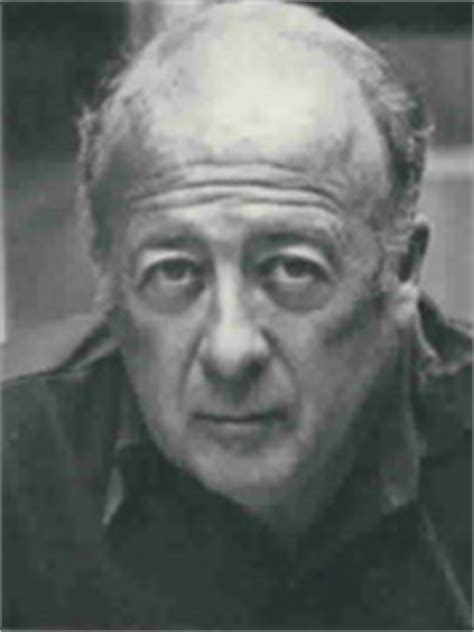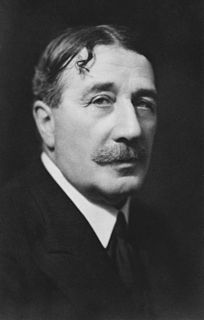A Quote by Robert Browning
Ever judge of men by their professions. For though the bright moment of promising is but a moment, and cannot be prolonged, yet if sincere in its moment's extravagant goodness, why, trust it, and know the man by it, I say,- not by his performance; which is half the world's work, interfere as the world needs must with its accidents and circumstances: the profession was purely the man's own. I judge people by what they might be,- not are, nor will be.
Related Quotes
The judge who sits over the murderer and looks into his face, and at one moment recognizes all the emotions and potentialities and possibilities of the murderer in his own soul and hears the murderer's voice as his own, is at the next moment one and indivisible as the judge, and scuttles back into the shell of his cultivated self and does his duty and condemns the murderer to death.
Everyone has a moment in history which belongs particularly to him. It is the moment when his emotions achieve their most powerful sway over him, and afterward when you say to this person "the world today" or "life" or "reality" he will assume that you mean this moment, even if it is fifty years past. The world, through his unleashed emotions, imprinted itself upon him, and he carries the stamp of that passing moment forever.
Man is a machine, but a very peculiar machine. He is a machine which, in right circumstances, and with right treatment, can know that he is a machine, and having fully realized this, he may find the ways to cease to be a machine. First of all, what man must know is that he is not one; he is many. He has not one permanent and unchangeable “I” or Ego. He is always different. One moment he is one, another moment he is another, the third moment he is a third, and so on, almost without end.
[In response to Alfred Tennyson's poem "Vision of Sin," which included the line "Every moment dies a man, every moment one is born."] If this were true, the population of the world would be at a stand-still. In truth, the rate of birth is slightly in excess of death. I would suggest that the next edition of your poem should read: "Every moment dies a man, every moment 1 [and] 1/16 is born." Strictly speaking, the actual figure is so long I cannot get it into a line, but I believe the figure 1 [and] 1/16 will be sufficiently accurate for poetry.
One of man's important mistakes, one which must be remembered, is his illusion in regard to his I. Man such as we know him, the 'man-machine,' the man who cannot 'do,' and with whom and through whom everything 'happens,' cannot have a permanent and single I. His I changes as quickly as his thoughts, feelings and moods, and he makes a profound mistake in considering himself always one and the same person; in reality he is always a different person, not the one he was a moment ago.
You cannot judge a man's life by the success of a moment, by the victory of an hour, or even by the results of a year. You must view his life as a whole. You must stand where you can see the man as he treads the entire path that leads from the cradle to the grave - now crossing the plain, now climbing the steeps, now passing through pleasant fields, now wending his way with difficulty between rugged rocks - tempted, tried, tested, triumphant.
The real is near, you do not have to seek it; and a man who seeks truth will never find it. Truth is in what is - and that is the beauty of it. But the moment you conceive it, the moment you seek it, you begin to struggle; and a man who struggles cannot understand. That is why we have to be still, observant, passively aware.
But we must admit the possibility that continued investigation and experience will bring us ever nearer to that solemn moment, when the first man will rise from earth by means of wings, if only for a few seconds, and mark that historical moment which heralds the inauguration of a new era in our civilization.
The reality of living by faith as though we were already dead, of living by faith in open communion with God, and then stepping back into the external world as though we are already raised from the dead, this is not once for all, it is a matter of moment-by-moment faith, and living moment by moment. This morning's faith will never do for this noon. The faith of this noon will never do for suppertime . The faith of suppertime will never do for the next morning. Thank God for the reality for which we were created, a moment-by-moment communication with God himself.
Then I saw it, and it just grabbed me. That moment, that breath just before destiny, between innocence and power. He'll pull the sword free. You know it. And in that moment, the world changes. Camelot's born, Arthur's fate is sealed. He'll unite a people, be betrayed by a woman and a friend, and sire the man who'll kill him. In this moment, he's a boy. In the next he'll be a king.
Man himself is an enigma in motion; his questions never stay asked; whereas the mold, the footprint, and by natural extension, the statue itself, like the vaults, the arches, the temples with which man records his own passing, remain immobile and fix a moment of man's life, upon which one might endlessly meditate.







































